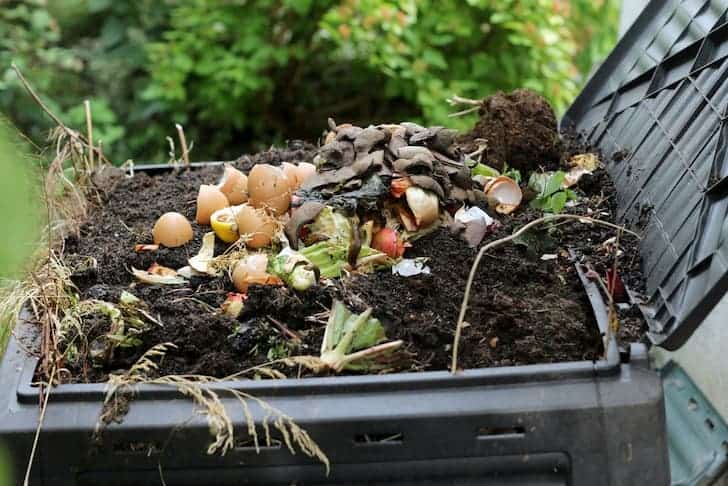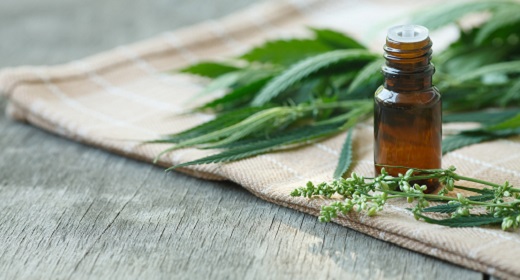by Rinkesh: There is so much talk about saving the planet these days. It’s so viral that no one can pretend not to have a part to play in it…
If you think about it, creating a greener environment is not only about planting trees and regulating big factories. It goes a long way more than that. Every of our action counts towards saving our only natural home.
If we must commit to going green, then we have to start from the rarely talked about places and activities. This is because that is where the little differences happen.
Today, we leave the widespread discussion and take a peep into your kitchen.
Who doesn’t love a clean kitchen?! The shining marble counters, stainless sinks, organized cabinets, and a spotlessly clean floor. Now imagine, along with all this, you can have a green system, and practice eco-friendly methods for your cooking space. Between planning meals, shopping for groceries cooking, and cleaning up afterward, the kitchen can create a substantial amount of wastage.
Let’s look at a few ways to make your kitchen greener in the most efficient methods and make sure to apply some of these tips to your kitchens. In this post, we tell you how you can go green in your kitchen. Here are 21 unique ways to do that.
21 Amazing Ways to Make Your Kitchen Green
1. Recycle
The first step to go green is to always think about recycling. It is essential to avoid polluting the environment. To go green in your kitchen, get a recycle bin, and dump your used and recyclable materials in them.
You have to cultivate the habit of recycling your soft drinks and milk jugs containers. Once you spot the code #1 or #2 on your used containers, don’t think twice; throw them in the recycle bin.
You can also reach out to your local recycling centers to know what materials they will accept for recycling and whether you would need to sort them out before recycling.
2. Shop with Your Bags
Every time you go to the store, cultivate the habit of going with your shopping bags. It helps save the need for plastic or paper shopping bags.
With these, you can rid your kitchen of a pile of useless paper or plastic bags. Besides, since paper bags come from felling trees when you go with your reusable shopping bags, you help to save our trees.
3. Go Local
You see, many of the kitchen items, foods, and veggies you buy are from a very long distance. Shipping them waste time, fuel, and pollute the environment. Plus, they may not be as fresh as when they were first ready for shipping.
An alternative for you is by patronizing your local businesses for all your kitchen needs. Doing this helps save the cost of transportation, helps reduce the emission of toxic gases from transportation. You even get a bonus at a lower price.
If you can, shop organically. It helps reduce the impact of pesticides and herbicides on the environment.
So, decide to go local today and save the environment.
4. Select the Correct Appliances
For a greener kitchen, energy-efficient appliances are a must-have. Select a good-quality dishwasher which uses a lot less water than washing the dishes by hand. You can purchase a small refrigerator to avoid unnecessary storage of food, which ultimately goes to waste.
If you want to purchase a new appliance, some companies provide exchange offers that can help you get rid of those appliances which contain hazardous chemicals.
You can also avoid purchasing a smart-fridge or a smart-microwave and invest in a durable and sturdy model that will last for years. You should also avoid an oven exhaust because it’s not a primary requirement.
In the case of electric mixers and blenders, you can replace them with non-electric hand mixers and manual tools for freshly made fruit or vegetable juice.
For your beverage containers, you can select a stainless steel coffee mug or glass containers for cereal, spices, etc., or any non-plastic options for a quick impact.
You can also replace the plastic covers with bowl covers or beeswax sheets.
5. Energy-efficient Construction
You can make use of recycled countertops. You should invest in green-flooring materials like bamboo or cork. You can use water-based eco-friendly finishes.
Furthermore, you can also install energy-saving lightbulbs. Place water-saving features like faucets with aerators. You can install recirculation pumps that keep hot water at the tap. Another way to improve the air quality in your kitchen is to install a chimney hood.
6. Do it Yourself (DIY)
You can avoid purchasing pre-prepared or frozen foods, and make them yourself. This way can help you in avoiding the unnecessary steps that accompany frozen foods like reheating, thawing, etc. This step also eliminates the energy associated with processed foods.
If you have space, you can grow your vegetables and fruits. You can use the uncooked waste from your kitchen as a fertilizer for your vegetable garden. Instead of using soap or chemicals to clean the kitchen counters and dishes, you can make use of white vinegar and baking soda.
Another great way is to dry your home-grown spices instead of purchasing them from the supermarket.
7. Energy-efficient Cooking Practices
The best way to reduce waste is to prepare your foods rather than buying pre-made options.
You can make yogurt at home with some leftover milk and store it in ceramic or glass containers. You can even prepare bread at home.
Another way to cut waste is to avoid pre-heating, and many new ovens come to temperature rapidly, altogether avoiding the need to pre-heat.
For flexible cooking, you can put the mixture or broth in the oven quickly, turn off the heat after 10 to 15 mins and then let it cook in the residual heat.
The same technique of residual heat can be used for electric stovetops as well.
For small dishes, you can use a microwave, which reduces 80% energy as compared to an oven. Using a proper sized pot for each burner reduces the loss of heat.
Make sure to cover your pots and pans with their respective lids as it helps reduce cooking time and keeps the heat inside. Pressure cookers can also save energy by reducing cooking time up to 65%.
8. Wait till You Need It
It is tempting to want to make all your meals at once and only take those you need and keep the rest. However, if you have noticed, much of the food you make all at once go to waste.
Instead of just wasting food and wasting money, while not just wait till you need it and make the food?
This way, you are saving the environment and managing your food consumption properly.
9. Vote for Least Packaging
The lesser the packaging of your foods and veggies, the eco-friendlier they are. Often, the packaging that our nutrition and veggies come in are useless and do not degrade fast.
When we unpack and throw them away, as we would often do, they harm the environment.
So, the next time you make a trip to the market, watch out for items with the least packaging. Or you can go with your reusable pack to save the environment.
10. Do Your Dishes Smartly
Washing your dishes while the faucet runs wastes a whole lot of water. This is more heart-breaking at a point where scarcity of water stares us in the face.
In going green, you would have to conserve water by doing your dishes when you need to. You may need to allow them to stockpile for some hours and wash all at once.
If you have the time, make your cleaning products and materials. They help you go green in your kitchen.
11. Cook Your Meal Smartly
When you make your meal, you get two things; better taste and healthier food. There is nothing as fulfilling as this. To cap it all, you are contributing to a greener society by cooking your meals.
You avoid unnecessary trips to the market and save pollution from transportation.
As a way of cooking smartly, you can also make use of ingredient substitutes, instead of relying on just one.
Also, you can choose kitchen utensils that last longer to avoid easy wearing. Lastly, cook smartly by learning how to cook more than one thing at once.
12. Slow Down on Waste
No other places in your home generate as much waste as your kitchen. Because of this, it is hard to stop producing waste. Well, the good news is that you can slow down on it.
You have to first commit to reusing as much as you can. You can preserve your leftovers and make stews the next time. You can cut your demand for plastic and paper packaging by shopping with your reusable bags.
You can buy fresh and avoid foods with excessive packaging. You can even plant your foods and harvest the only quantity you want when you need it.
You can refuse needless packaging in the supermarket. You can save the egg cartons and use them as a replacement for coal while barbequing. Make use of old plastic bags as covers for your trash cans.
You can also reuse old glass jars or bottles for storage. Reuse old plastic bottles to create home-made flower vases for your kitchen, which results in cleaner air. Use a small quantity of cooking oil to avoid wastage and for a healthy living style.
13. Make Compost
Do you ever think that you can compost any of your kitchen wastes? Well, here you have it. Many of the rubbish you think have no use can be used to boost your little backyard garden. From your eggshells to your fruits and vegetables, they are all great for your garden
So, instead of just trashing your wastes and leftovers, get a compost bin near your kitchen sink and pour them there. When it’s time, your garden plants will appreciate you for it.
14. Save Energy
Yes, you can save energy right from your kitchen. Many of the kitchen appliances you use typically consume a lot of energy. Well, you have to be prudent about it.
For a start, you should use kitchen appliances that have the energy star logo. You can consider using pressure cookers for your foods; it saves time and energy. You can use your microwave instead of your ovens. According to energy star estimates, you can save as much as eighty percent of energy by preferring microwaves to ovens.
If you must use your oven, try to make the best use of your it by cooking more than one thing at a time.
If you are buying a new gas stove, always watch out for the ones with lower British Thermal Unit Output (BTU). If it is an electric stove, go for the one with induction elements. They help save energy when using.
15. Drink Tap Water and Save Money
You can save money on bottled water and drink your tap water. Here is how to go about it.
You have to use a faucet-mounted system or a water filtering pitcher to filter and decontaminate the water before you drink.
With this, you get rid of lead, chlorine, and other chemicals in your water. You also save the environmental cost of making, shipping, and storing your plastic bottled water.
16. Make Only What You Need
Making only what we need when we need it can be a little complicated, but it is the right decision. Except you have family and friends coming over, make what you need, and can finish at a go. It is more prudent this way. You save your time, stress, and help conserve energy.
17. Embrace Reusable Materials
Reusable materials are just as great as you can imagine. In your kitchen, instead of piling paper towels in the waste bin, why not embrace reusable towels. Glass jars and storage containers should also replace your plastic containers.
Reusable materials will last longer, make your kitchen look better, and save the environment.
18. Learn to Store
Instead of buying things you need every time you need them, why not buy in bulk and learn to store? Storing does not take time, and it requires no skills.
This way, you are saving yourself the stress and saving money too. This can help you minimize trips to the market. And of course, transportation emitting fumes gets reduced.
19. Go for Fresh
While you must store, you must also go for fresh. And this concerns foods that come in plastic packaging. Well, they are not so great for the environment. The plastics are not reusable and take a long to degrade. This can affect the environment significantly.
So, instead of harming the environment, why not go for fresh foods. If you cannot avoid buying packaged foods and veggies, commit only to purchase those whose package containers are renewable. You can also cultivate a small farm in your garden where you get things your veggies and fruits fresh from the source.
20. Green Means Clean
Plants play a crucial role in affecting the environment. Carefully placed flower vases can light up your kitchen through colors. One or two small pots of herbs in the kitchen can be useful for healthy cooking and clean air. Plants like English Ivy hung near the sink or window can help purify the air.
An aloe vera plant placed near the cooking range can come in handy if you burn yourself. The spider plant, if placed in the kitchen, helps remove odor and pollutants from the air. One of the best kitchen plants is the herb basil, if grown at home, saves you a trip to the supermarket.
21. Select the Correct Material
Stainless steel is an excellent product to reach for when it comes to sustainability. It’s a long-lasting material. The material is entirely recyclable at the end of its use. It also consumes limited resources.
Teflon-based cookware can have hazardous health effects, which makes it suitable to own stainless steel or cast iron-based cookware.
Choose durable utensils made from premium quality materials like wooden salad bowls, wood spoons, and serving bowls. Avoid low quality wooden spoons and spatulas. High-quality knives are always a good investment with a profitable outcome.
You can also use appliances made from ceramic, stone or glass such as ceramic bowls and graters, and stoneware cooking sheets. Replace the paper towels with soft, long-lasting cloth towels. Make use of manual tools like a non-electric hand mixer to save electricity.
In Conclusion
Now that you have all you need to go green in your kitchen, decide to save the planet today. It is left for you to be more conscious about your kitchen’s activities on the environment. Choose wisely, contribute to the struggle, and help us all save the planet and go entirely green.
Remember “Practice green” is not just an idea or philosophy. It’s a healthier lifestyle for you and your family. It also helps you financially and is a small step towards the bigger picture.





















































